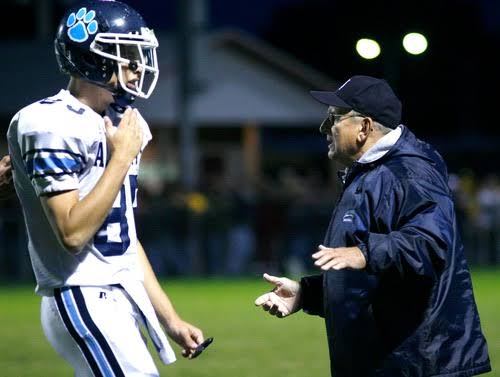
In the National Football League (NFL), the role of the head coach is paramount to the success of a team, particularly when it comes to making crucial decisions that directly affect the quarterback. The quarterback is the leader on the field, often referred to as the “field general,” and their performance can determine the outcome of a game. A coach’s decisions regarding the quarterback can influence everything from starting lineups to game strategy, and can have lasting implications on the team’s season and long-term success.
One of the most important decisions a coach makes regarding the quarterback is determining the starter. This decision typically involves evaluating several factors, including the quarterback’s skill set, leadership qualities, and experience. For instance, a veteran quarterback may bring a level of poise and game management experience, while a younger, more mobile quarterback might offer more dynamic playmaking ability. The coach must assess not only the quarterback’s physical attributes but also how well they fit into the offensive system, and how they mesh with the team’s overall strategy.
When making this decision, the head coach often consults with the offensive coordinator and other key members of the coaching staff. Together, they consider the team’s strengths and weaknesses, as well as the specific challenges posed by upcoming opponents. A coach may also evaluate a quarterback’s practice performance, his ability to read defenses, and his decision-making under pressure. Ultimately, the coach’s choice can set the tone for the team’s offensive approach, and influence the rhythm of the entire squad.
In addition to choosing the starting quarterback, coaches are tasked with managing quarterback development. For young quarterbacks, coaches must carefully structure their learning process. This might involve a gradual transition from a backup role to a starting position or providing a combination of practice reps and game-time experience. A coach must also be prepared to make adjustments if a quarterback struggles, providing constructive feedback and offering the necessary support to build confidence.
In situations where the starter is injured or underperforming, a coach must decide whether to stick with the incumbent quarterback or make a change. A decision to bench a starting quarterback can be a sensitive one, as it can affect the player’s morale and the team’s dynamics. Yet, it’s sometimes necessary for the greater good of the team. A coach might turn to a backup quarterback who has demonstrated strong potential during practice or in limited game action. For example, in situations where the starter is injured, the coach might turn to a backup quarterback who offers a different skill set, such as a stronger arm or better mobility.
Coaches also influence the quarterback’s decision-making on the field. By designing specific game plans, offensive schemes, and playcalling strategies, coaches provide a framework within which the quarterback operates. A coach might emphasize short, quick passes to minimize the risk of turnovers, or design a more aggressive deep-passing game to take advantage of the opposing defense’s weaknesses. The playcalling directly affects the quarterback’s role during the game and can either empower or limit their effectiveness.
The relationship between coach and quarterback is a critical factor in the success of any team. Strong communication, mutual trust, and respect are essential for a quarterback to thrive in the system a coach has built. Coaches must not only make tactical decisions but also provide mentorship and emotional support to help their quarterbacks navigate the pressures of the NFL.
In conclusion, the NFL coach plays a fundamental role in shaping a quarterback’s career and the team’s offensive success. The decisions a coach makes about who starts, how the quarterback develops, and the in-game strategies employed can significantly influence the performance of the quarterback, and by extension, the team’s overall success. Through careful consideration, guidance, and decision-making, the coach helps maximize the quarterback’s potential, ultimately aiming for victory on the field.
Leave a Reply